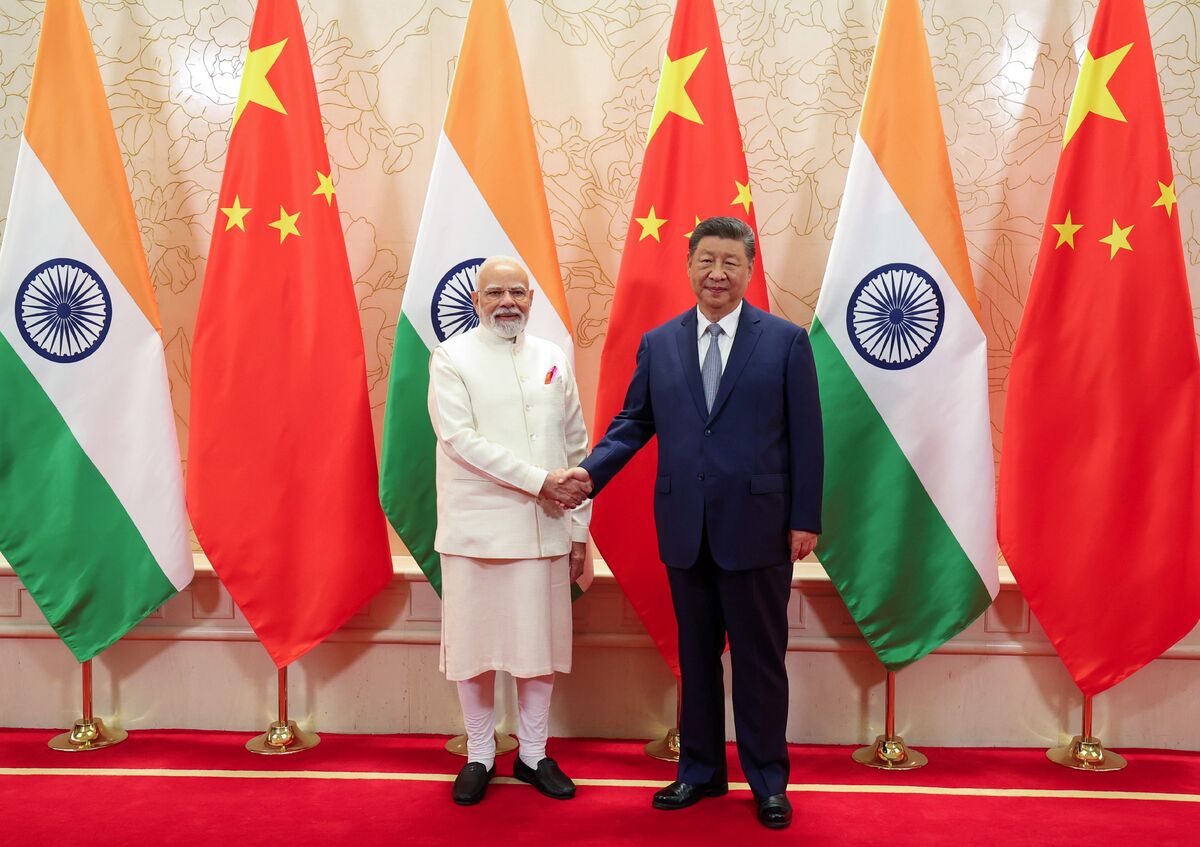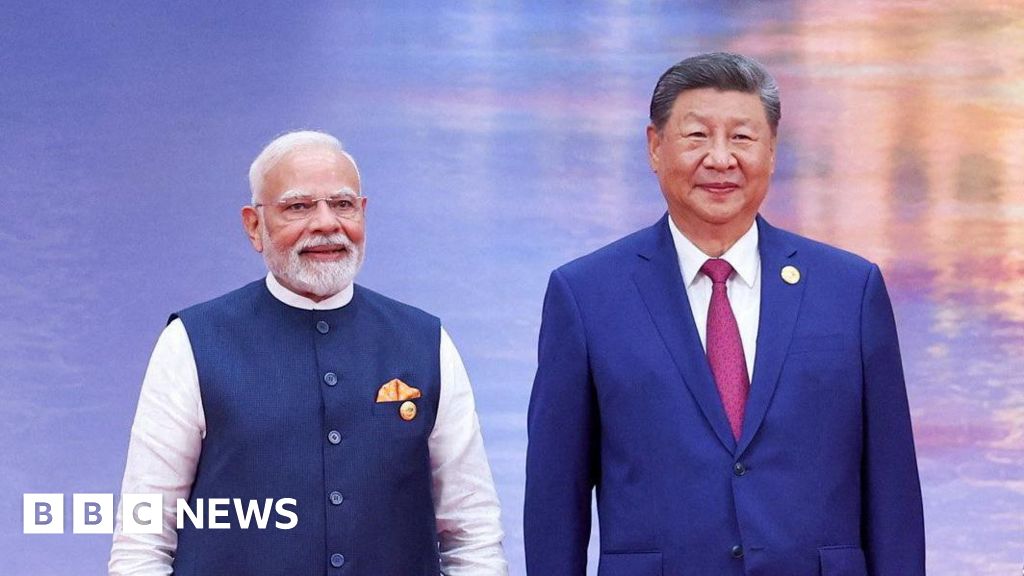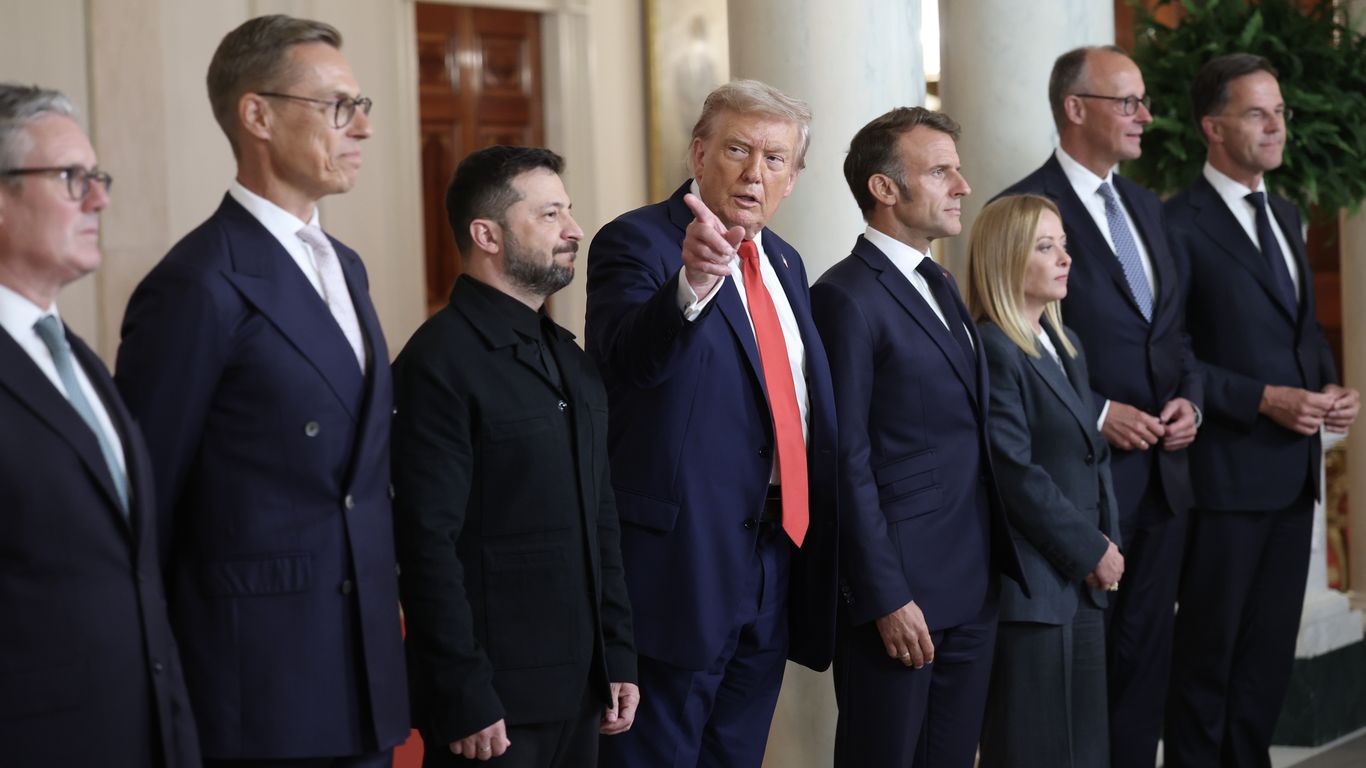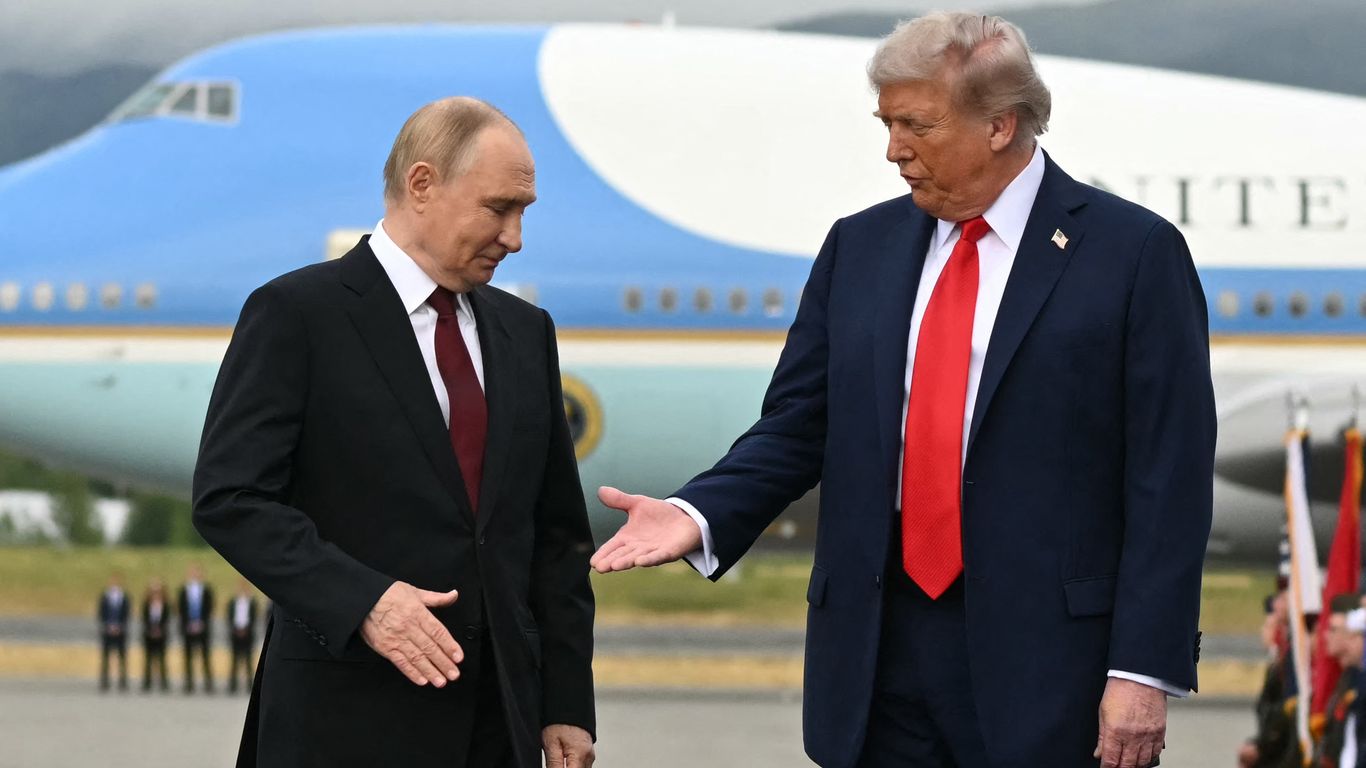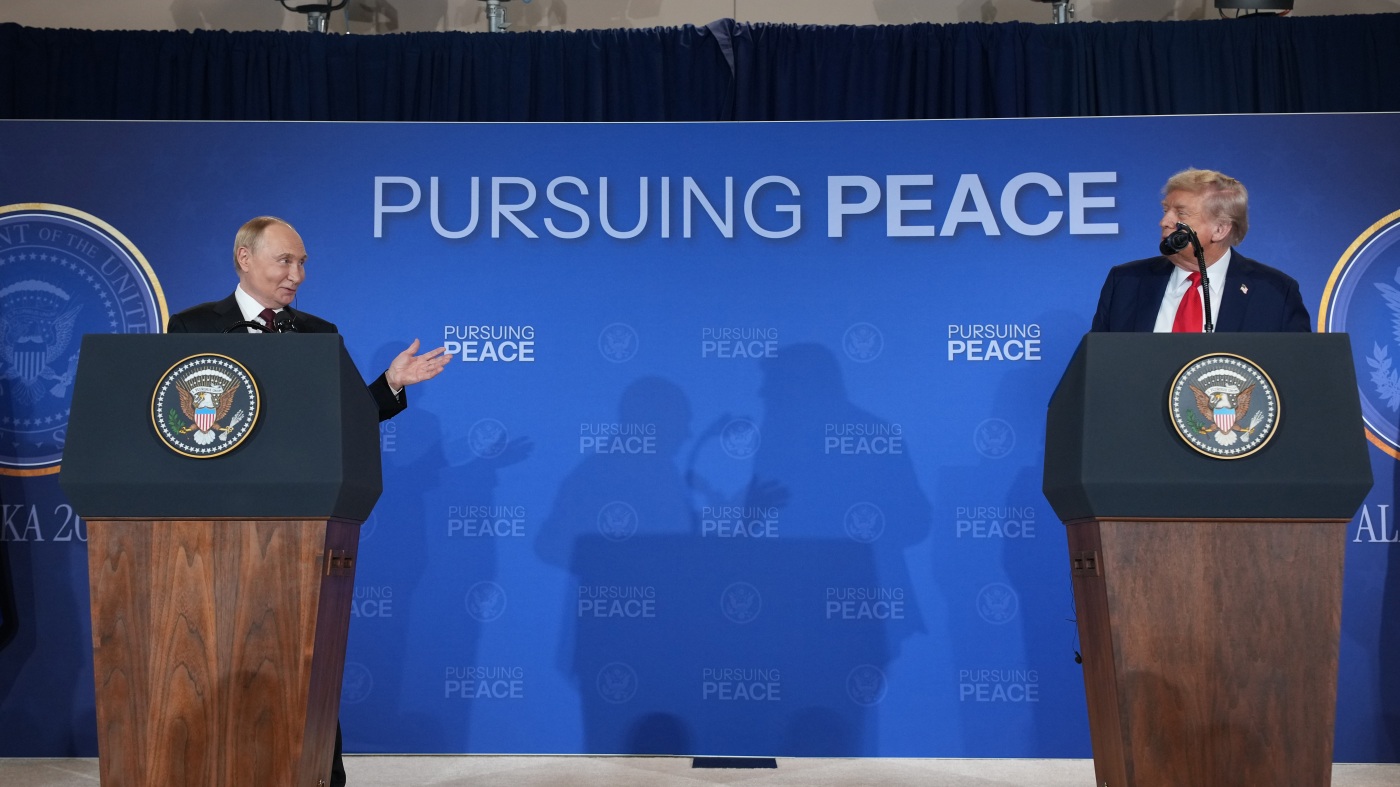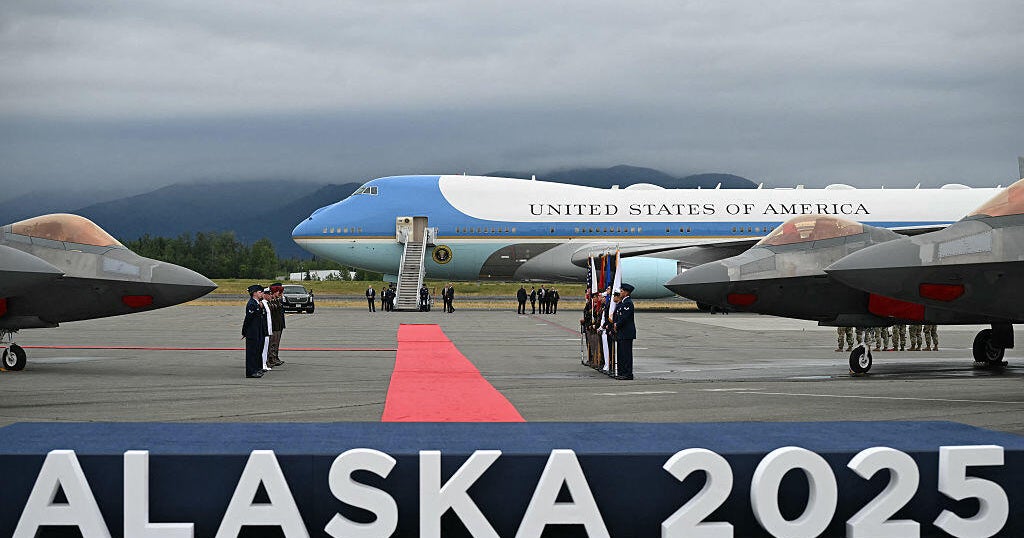Modi, Xi, and Putin: An Unlikely Alliance Against Trump
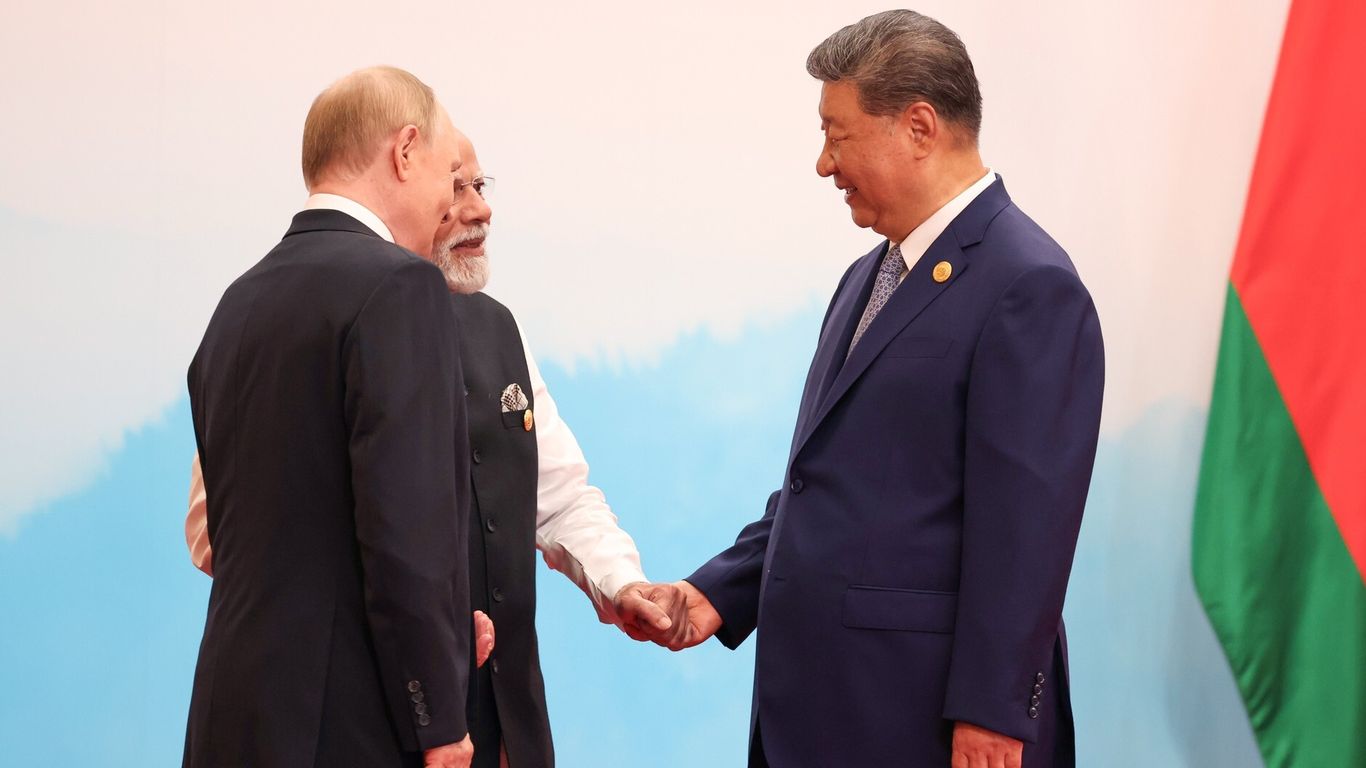
Modi, Xi, and Putin: An Unlikely Alliance Against Trump
The recent G20 summit in Japan saw Indian Prime Minister Narendra Modi, Chinese President Xi Jinping, and Russian President Vladimir Putin joining hands in a show of unity. This image is a symbolic blow to Trump and his isolationist policies, as it highlights the emergence of a new global alliance between these three leaders.
A United Front Against Protectionism
The alliance between Modi, Xi, and Putin is not just for show. It is a direct response to the protectionist policies of the United States, which have caused trade tensions and economic uncertainty on a global scale. With India, China, and Russia being the three largest emerging economies, this alliance has the potential to disrupt the current world order and challenge the dominance of Western powers.
Implications for the Future
The unity between these leaders also has implications for future collaborations and partnerships. By joining forces, they can exert more influence on global issues such as climate change and regional conflicts. This alliance also signals a shift in power dynamics and a possible reconfiguration of global alliances.
About the People Mentioned
Narendra Modi
Narendra Damodardas Modi, born September 17, 1950, in Vadnagar, Gujarat, is the current Prime Minister of India and a leading figure in the country’s political landscape[1][4]. He is the first Indian prime minister born after India’s independence in 1947[5][7]. Modi’s early life was marked by modest beginnings in a lower-middle-class family, and he became involved with the Rashtriya Swayamsevak Sangh (RSS), a right-wing Hindu nationalist organization, at a young age[2][4]. His political career began in earnest when he joined the Bharatiya Janata Party (BJP) in the 1980s, rising through its ranks due to his organizational skills and grassroots appeal[2][4]. Modi’s first major political role was as Chief Minister of Gujarat from 2001 to 2014, where he was known for pro-business policies and infrastructure development, though his tenure was also controversial due to the 2002 Gujarat riots, for which he faced criticism but was later cleared by a Supreme Court-appointed investigation[4]. In 2014, Modi led the BJP to a decisive national victory, becoming Prime Minister and ending a long period of coalition governments[1][2]. He was re-elected in 2019 and again in 2024, making him one of India’s longest-serving prime ministers and the first outside the Indian National Congress to achieve such longevity[4][2]. As Prime Minister, Modi has pursued sweeping economic reforms, including the introduction of the Goods and Services Tax (GST) to simplify India’s tax system and the demonetization of high-value currency notes to combat corruption[1][6]. He has launched initiatives like “Make in India” to boost manufacturing, “Digital India” to expand internet access, and “Atmanirbhar Bharat” (Self-Reliant India) to reduce import dependency, especially after the COVID-19 pandemic[6]. His government has also implemented large-scale welfare programs such as Ayushman Bharat (health insurance for the poor), Pradhan Mantri Jan Dhan Yojana (financial inclusion), and Ujjwala Yojana (clean cooking fuel for rural households)[5]. Modi’s tenure has seen a marked shift in India’s foreign policy, with increased global engagement, strategic partnerships, and advocacy for a permanent UN Security Council seat[3]. Domestically, his leadership has been associated with a rise in Hindu nationalist sentiment and policies appealing to the Hindu majority[1]. While his economic reforms have expanded the tax base and modernized infrastructure, critics point to challenges such as unemployment and rising living costs[1]. Modi remains a central and polarizing figure in Indian politics, with his policies and persona continuing to shape the nation’s direction into the mid-2020s[2][4].
Xi Jinping
Xi Jinping is a prominent Chinese politician born on June 15, 1953, in Fuping, Shaanxi Province. He is the son of Xi Zhongxun, a veteran of the Chinese Communist Party (CCP). During the Cultural Revolution, Xi was sent to rural Yanchuan County, Shaanxi, where he eventually joined the CCP in 1974. He studied chemical engineering at Tsinghua University as a worker-peasant-soldier student and later earned a Doctor of Law degree from the university through an in-service graduate program in Marxist theory and ideological and political education[1][5]. Xi rose through the ranks of the CCP, serving as governor of Fujian from 1999 to 2002 and then as governor and party secretary of Zhejiang from 2002 to 2007. He briefly served as the party secretary of Shanghai in 2007 before joining the Politburo Standing Committee the same year. In 2012, he became the general secretary of the CCP and chairman of the Central Military Commission, marking the beginning of his tenure as China's paramount leader. Since 2013, Xi has also held the position of President of the People's Republic of China[1][3]. Under Xi's leadership, China has made significant strides in reducing poverty and curbing corruption. He has been praised for his efforts in these areas, which were highlighted in a historical resolution passed by the CCP in 2021[3]. Recent developments include Xi's re-election to a third term as general secretary of the CCP in October 2022 and his third term as president of China in March 2023, following constitutional changes that removed term limits for the presidency[3]. Xi's influence has been further solidified by the composition of the 20th Politburo Standing Committee, which consists of his loyalists[3].
Vladimir Putin
Vladimir Putin is the current President of Russia, a position he has held for multiple terms since 2000, with a brief interlude as Prime Minister from 2008 to 2012[1][3]. Born in Leningrad (now Saint Petersburg) in 1952, Putin began his career in the Soviet Union’s security services, joining the KGB in 1975 and rising to the rank of Lieutenant Colonel by the time he left in 1991, following postings in East Germany and Leningrad[4]. After the Soviet Union’s collapse, he transitioned into politics, serving as an adviser to Saint Petersburg Mayor Anatoly Sobchak and later moving to Moscow, where he held various administrative roles under President Boris Yeltsin[6]. Putin was appointed Prime Minister in August 1999 and became acting President when Yeltsin unexpectedly resigned that December[3][6]. He won his first presidential election in March 2000, promising to stabilize Russia’s economy and political system after the tumultuous 1990s[3][7]. During his initial terms, he centralized power, reasserted federal control over Russia’s regions, and curtailed the influence of the country’s oligarchs through legal and economic measures[7]. Putin was re-elected in 2004 but, due to constitutional term limits, stepped aside in 2008, becoming Prime Minister under his successor Dmitry Medvedev, while retaining significant influence[3]. Constitutional amendments later extended presidential terms, and Putin returned to the presidency in 2012[1]. Putin’s time in office has been marked by assertive foreign policy, including military interventions in Syria in support of President Bashar al-Assad and the 2014 annexation of Crimea, which led to international sanctions[1]. Domestically, his tenure has seen increased state control over media, the suppression of political opposition, and constitutional changes consolidating executive authority[1]. In 2022, Russia’s full-scale invasion of Ukraine triggered a major international crisis, further isolating Russia from the West and prompting widespread condemnation[1]. As of 2025, Putin remains a dominant figure in Russian politics, having secured another term in office through constitutional changes that allow him to potentially remain president until 2036[1]. His leadership continues to shape Russia’s domestic trajectory and its role in global affairs, amid ongoing conflict in Ukraine and strained relations with NATO and Western countries[1].
Donald Trump
Donald John Trump, born June 14, 1946, in Queens, New York, is an American businessman, media personality, and politician. He graduated from the University of Pennsylvania’s Wharton School in 1968 with a degree in economics. In 1971, he took over his family’s real estate business, renaming it the Trump Organization, through which he expanded into building and managing skyscrapers, hotels, casinos, and golf courses. Trump gained widespread fame as the host of the reality TV show *The Apprentice* from 2004 to 2015, which helped establish his public persona as a successful entrepreneur. Trump entered politics as a Republican and was elected the 45th president of the United States, serving from 2017 to 2021. His presidency was marked by significant policy actions including tax cuts, deregulation, the appointment of three Supreme Court justices, renegotiation of trade agreements (notably replacing NAFTA with the USMCA), and a focus on immigration control including border wall expansion. He withdrew the U.S. from international agreements such as the Paris Climate Accord and the Iran nuclear deal, and engaged in a trade war with China. His administration’s response to the COVID-19 pandemic was criticized for downplaying the virus’s severity. Trump was impeached twice by the House of Representatives—first in 2019 for abuse of power and obstruction, and again in 2021 for incitement of insurrection—but was acquitted by the Senate both times. After losing the 2020 election to Joe Biden, Trump challenged the results, culminating in the January 6, 2021, Capitol riot. He remains a central figure in American politics, having won the 2024 presidential election and returned as the 47th president in 2025, continuing to promote policies aimed at economic growth, border security, and military strength[1][2][3][4].
About the Organizations Mentioned
G20
## Overview of the G20 The Group of Twenty (G20) is an international forum that brings together the world’s largest economies—19 sovereign countries plus the European Union and, since 2023, the African Union—to address pressing global economic and financial issues[1][2]. Collectively, G20 members represent about 85% of global GDP, over 75% of international trade, and nearly two-thirds of the world’s population[1][3]. The forum’s influence is significant, though it operates without a permanent secretariat or staff; instead, the G20 Presidency rotates annually among its members, with support from a “troika” of past, present, and future host countries to ensure continuity[1][3]. ## History and Purpose The G20 was established in 1999 in response to financial crises of the late 1990s, with the aim of promoting international economic stability and cooperation[2][4]. Originally a meeting of finance ministers and central bank governors, it elevated to a leaders’ summit in 2008 during the global financial crisis, which marked a turning point in its prominence[2][4]. Since then, the G20 has become the premier platform for coordinating macroeconomic policy, though its agenda has broadened to include trade, climate change, sustainable development, health, digital economy, and even geopolitical issues like terrorism and migration[2][5]. ## Key Achievements One of the G20’s most notable achievements was its coordinated response to the 2008 global financial crisis, which helped stabilize the world economy[4]. The group has also driven reforms in international financial regulation, supported global climate agreements, and advanced the digital economy as a key growth driver[5]. Initiatives like the G20/OECD Base Erosion and Profit Shifting (BEPS) project and the G20 AI Principles reflect its evolving role in addressing cross-border taxation and technology governance[6]. The inclusion of the African Union in
United States
The **United States** is a federal republic and a global superpower, playing a leading role in economics, military strength, technology, and governance. It is a nation of approximately 348 million people as of 2025, characterized by its diverse population and dynamic economy[8][6]. Founded in 1776 following independence from British rule, the U.S. rapidly evolved into a major world power, especially after World War II, when its technological and economic investments solidified its global dominance[4]. Today, it remains the world’s preeminent military power, with 76% of Americans recognizing this status, while about half view it as the leading economic power globally, though China is seen as a rising competitor[2][3]. The U.S. government operates through a complex system that manages federal finances, taxation, social welfare programs, and trade policies. Recent legislative changes, such as the 2017 Tax Cuts and Jobs Act and the 2025 One Big Beautiful Bill Act, have shaped the tax landscape to influence economic growth, labor markets, and federal revenue[1]. Despite challenges like rising federal deficits projected to reach 6.9% of GDP by 2027, consumer spending remains resilient, and business investment is expected to grow steadily in 2025[5]. In governance, the U.S. is rated "Free" with a score of 84/100 by Freedom House, though concerns about democratic erosion and partisan conflicts persist[6]. Public trust and satisfaction with government services fluctuate, reflecting ongoing debates about policy effectiveness and institutional competence[7]. Technologically, the U.S. maintains a critical edge, underpinning its economic and geopolitical power. Experts warn, however, that technological dominance is not guaranteed indefinitely, emphasizing the need for adaptive policies and international cooperation to sustain leadership in innovation and global affairs[4]. Overall, the United States remains a pivotal force in global business, technology, and politics, balancing historic strengths with contemporary challenges in
